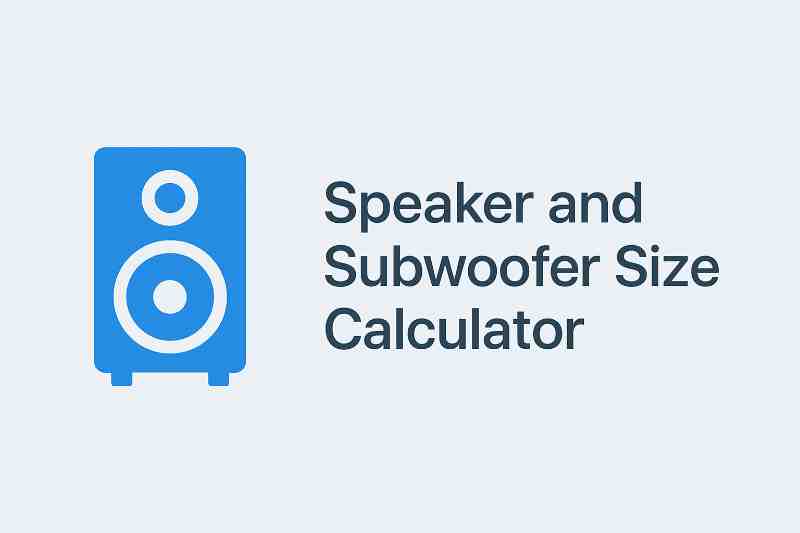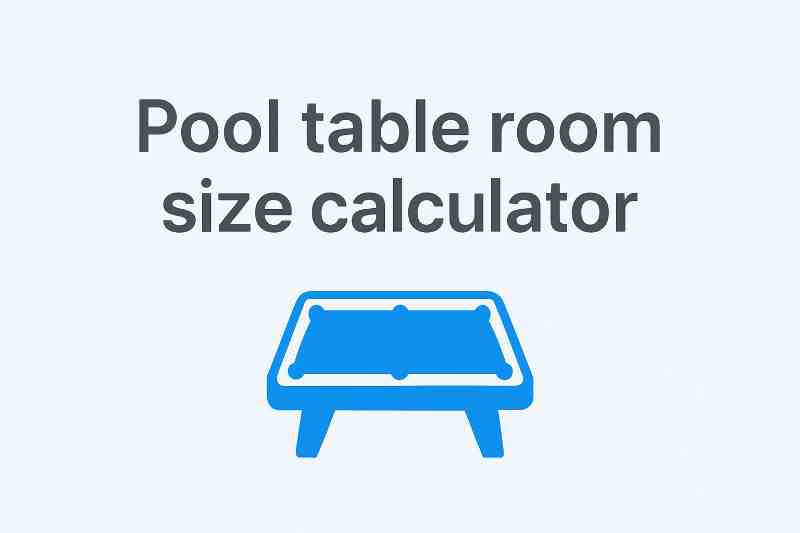Air Conditioner BTU Calculator
Results
Recommended BTU: —
Based on your room size, insulation, sunlight, and occupancy.Recommendations: —
Calculated for optimal cooling efficiency.Choosing the right air conditioner starts with understanding how many BTUs (British Thermal Units) your space needs. If your unit is too small, it will struggle to cool the room. If it’s too large, it may cool too quickly without removing humidity. That’s why our Air Conditioner BTU Calculator is here—to help you pick the ideal cooling capacity for your room size, layout, and usage.
Just enter your room dimensions, ceiling height, and other conditions to instantly get the correct BTU rating. Whether you’re buying a window unit, portable AC, or split system, this tool takes out all the guesswork.
What Are BTUs in Air Conditioning?
BTU stands for British Thermal Unit, and in air conditioning, it measures how much heat the AC unit can remove from a room per hour. The higher the BTU rating, the more powerful the air conditioner.
Most residential AC units range between 5,000 to 36,000 BTUs. Selecting the right BTU ensures energy efficiency, lower electricity bills, and better comfort.
BTU Calculation Formula for Air Conditioner
If you want to calculate it manually, here’s the basic formula:
BTU = Room Area (sq ft) × 20
This assumes average insulation, a standard 8-foot ceiling, and typical sunlight exposure.
For example: A 250 sq ft room needs approximately 250 × 20 = 5,000 BTU.
Adjustments to the Formula:
- High ceilings: Add 10% for every foot above 8 feet
- Sunny rooms: Add 10% to BTU
- Shaded rooms: Subtract 10%
- Multiple people: Add 600 BTU per additional occupant
- Kitchen use: Add 4,000 BTU
BTU vs Room Size Chart
Use this chart to get a quick idea of what AC size you need based on your room's square footage:
| Room Size (sq ft) | BTU Required |
|---|---|
| 100–150 | 5,000 BTU |
| 150–250 | 6,000 BTU |
| 250–300 | 7,000 BTU |
| 300–350 | 8,000 BTU |
| 350–400 | 9,000 BTU |
| 400–450 | 10,000 BTU |
| 450–550 | 12,000 BTU |
| 550–700 | 14,000 BTU |
| 700–1,000 | 18,000 BTU |
| 1,000–1,200 | 21,000 BTU |
What Size Room Will a 12,000 BTU Air Conditioner Cool?
A 12,000 BTU AC unit can effectively cool a room between 450 to 550 square feet, assuming average conditions. That makes it ideal for medium-sized living rooms, large bedrooms, or small open-plan areas.
How Many BTU Is a 1.5 Ton AC Unit?
AC capacity is also commonly referred to in “tons.” One ton equals 12,000 BTUs. So a 1.5-ton AC unit equals 18,000 BTU, which can cool areas up to around 1,000 square feet.
How Do I Calculate How Many BTU AC I Need?
You can use either:
- The manual BTU formula: Room Size × 20
- The quick reference BTU chart (above)
- Or simply use our BTU air conditioner room size calculator to get a precise answer based on ceiling height, sunlight, number of people, and room type.
Other Factors That Affect AC Size
- Windows: Large or sun-facing windows increase heat gain
- Insulation: Poorly insulated rooms may need more BTUs
- Room Usage: Kitchens or gyms produce more heat than bedrooms
- Climate: Hotter, humid regions may require stronger AC
FAQs About Air Conditioner BTU Sizing
What happens if my AC has too many BTUs?
It will cool the room quickly but won’t run long enough to remove humidity. This results in a clammy or damp feeling and may increase energy use unnecessarily.
Is it okay to oversize the air conditioner?
In general, it’s better to be slightly under than over. A properly sized AC will run longer cycles and more efficiently regulate humidity and airflow.
Can one AC cool multiple rooms?
If the rooms are open and connected, yes. But for separated rooms or rooms with doors, each space should be treated independently or use a central system.
What’s the best BTU for a bedroom?
Most standard bedrooms (150–300 sq ft) do well with 5,000 to 8,000 BTU AC units. Use the calculator above for an exact fit.
Final Thoughts
Choosing the right BTU capacity is crucial for comfort and efficiency. Use our Air Conditioner BTU Calculator to get fast, accurate recommendations based on your space. Whether you’re buying a new AC unit or just checking what size you need, this tool ensures you make the smartest choice without overspending or under-cooling.



